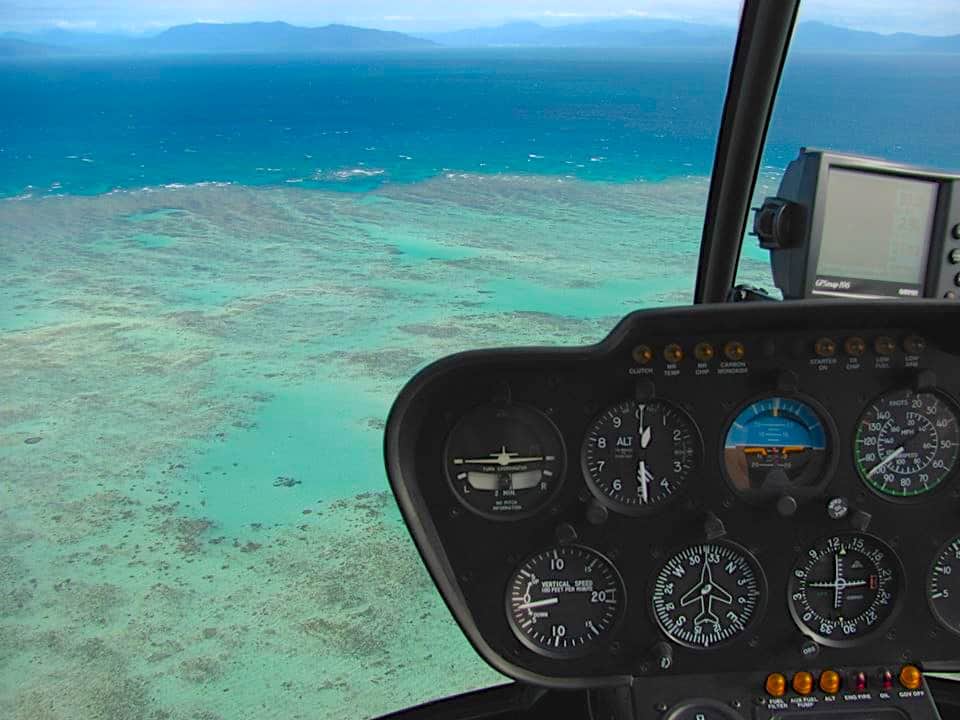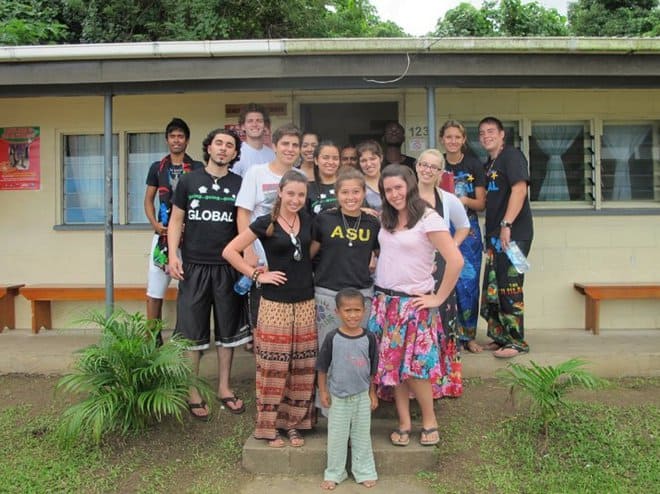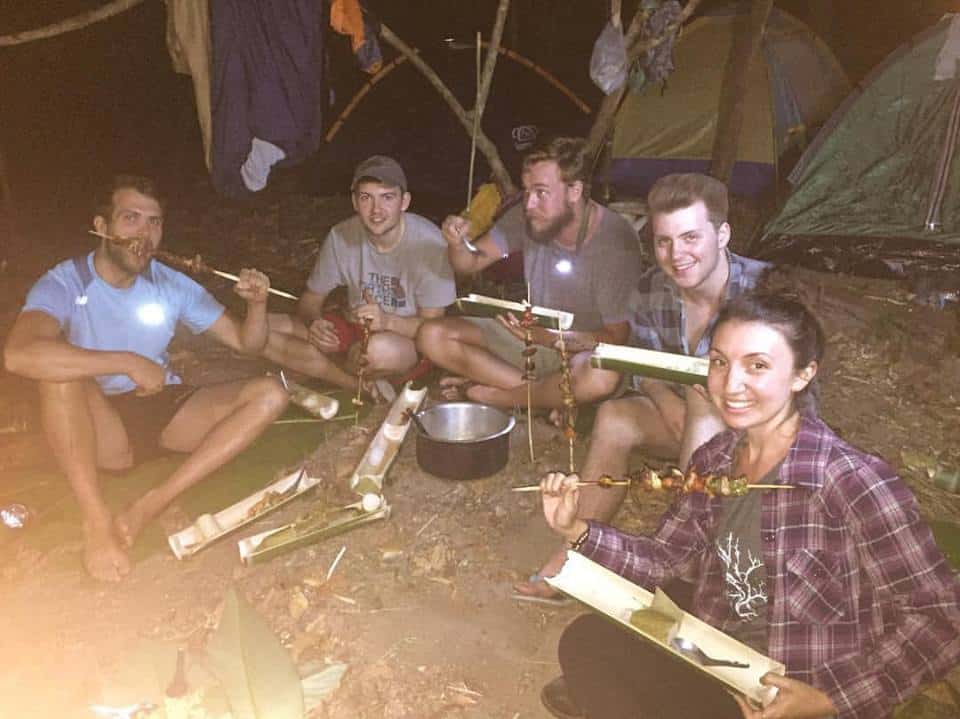
It is no secret that travel can be as cheap or expensive as your personal preferences require. Just know, that if you’re on a tight budget and can’t suppress your wanderlust, travel can still be obtainable. After traveling to over 50 countries on 6 continents, I wrote this post to share the 10 biggest cost-saving travel hacks that I have used to travel the world on a tight budget, and sometimes even for FREE!
The short story is that if you’re flexible and creative, prioritize travel over other luxuries, and try these cost-saving travel hacks, then travel can be affordable for almost anyone!
10 cost-saving travel hacks that I have used to travel the world for free or on a tight budget:
1. Do a work exchange
Work exchanges like pet sitting or volunteering on a farm are a great way to save money while traveling, potentially learn new skills, and get a unique travel experience!
TrustedHouseSitters is a REALLY cool website/tool which allows you to travel on a budget by helping you find FREE accommodation in exchange for pet sitting OR it can help you find FREE pet sitters while you travel! Essentially they give you the platform to find free & unique homestays around the world, in exchange for caring for adorable pets at your destination. Or you can find background checked and reviewed pet sitters that you can interview, who will stay in your home and care for your pets while you travel! You can get a membership for as cheap as $129/year (for UNLIMITED days of use). That’s literally the cost of one night of accommodation at an Airbnb OR of boarding for your pets. Plus, they have membership plans with insurance and other travel perks like airport lounge passes.
WWOOF is an international network that connects volunteers with organic farms, vineyards, and gardens around the world. Membership costs vary by region, but they give you access to a database of farms and hosts that will provide room and board for the duration of your stay. An annual WWOOF USA membership is $40USD. I have WWOOFed in Montana, Oregon, and Belize (on four different farms) and each experience was unique and incredibly rewarding. The work and accommodations vary, but it typically consists of 20 hours of work per week in exchange for meals and a roof over your head. To learn more about what WWOOFing is like, read my post about my experience volunteering on a farm in Oregon.
Workaway is another great network for people looking for part-time work in exchange for food and accommodation. It is perfect for people only available to work a few hours a day and interested in a cultural exchange experience. You can find opportunities that last a few days to a few months and jobs can range from house sitting to sailing and everything in between. There are currently over 30,000 hosts in 180 countries, making this the perfect tool to travel cheaply and find free accommodation around the world!
2. Stay in hostels
While traveling abroad, staying in hostels in general, and especially in hostel dorm rooms (with shared bathrooms) is a great way to make your money stretch much further and to make new friends if you’re traveling solo!
For example, in Thailand, I was only spending $3-15/night for accommodations in hostel dorm rooms. Most hostels also offer female-only and male-only dorm rooms if that makes you more comfortable.
Pro Tip: Almost every hostel provides some form of a locker for you in your room, so I recommend bringing a locker lock with you to hostel dorms, so you can secure your luggage while you’re out of your room. If there is no locker, ask if you can store your valuables at the front desk while you’re out and about sightseeing.
I use Hostelworld to book my hostels before I arrive in a country, but sometimes I even book a hostel dorm room last minute on a bus with wifi through the Hostelworld app on my phone.
Hostelworld allows you to look at a map and see location pins of the hostels nearby. It’s also great because it allows you to read reviews, see pictures, and a full list of facilities and services that each hostel provides.
Once you become a member for free, booking hostels all over the world is as easy as ordering your Uber. You can save your card information and contact details for quick and easy future bookings.

If you book your accommodation through one of my Hostelworld links, it doesn’t cost you anything extra, but I get a small commission which helps me afford to keep posting these travel tips for free! 🙂
Pro Tip: If you book your hostels and flights using a VPN, you could save A LOT of money, by eliminating artificial rates based on your location and search history.
3. Eat like a local
When you are on a budget, eating out can break your wallet, whether you’re in your home country or abroad. However, if you’re traveling in developing countries, eating “locally” is a great way to relieve your bank account.
I save a lot of money on food while I’m traveling by eating street food, at local restaurants or buying groceries and cooking cheap and simple meals in hostel kitchens.
Since I have Celiac disease and have to eat gluten-free, I also always pack a lot of snack bars and I recommend this whether you have a dietary restriction or not.
By avoiding touristy restaurants, you may sometimes risk food-borne illness, but you will save A LOT of money! Not only are the meals cheaper, but you’re typically not expected to tip (however if you can afford to, it’s always nice).
I’m not going to lie, I’ve had food poisoning a few times while traveling, but I’ll never let that stop me from enjoying the authentic local cuisine of the regions of the world I’m in.
Eating like a local has allowed me to travel to more places with all the savings I earn on skipping fine dining.
4. Use public transportation
I typically take whatever the cheapest means of transportation is when I’m traveling. That means I take trains, public buses, motorcycle taxis, tuk-tuks, and ferries during the daytime in a city if I’m alone, and If I’m with other people, I’ll even use public transit at night.
It’s not always safe to take public transit at night as a solo female traveler, so use your best judgment on this one. Potential safety risks aside though, there is no doubt that public transportation is way cheaper than racking up private taxi bills and unnecessary flights.
Pro Tip: a satellite communicator device is a great safety tool for solo female travelers!
I also often take buses and trains for long distances and international travel instead of flying whenever possible. This has saved me thousands of dollars in South America, Africa, Europe, New Zealand, and Southeast Asia.
Taking trains or busses for long distances, can also save you time and hassle in some cases, since you’re avoiding long wait times for security at airports.
5. Collect Airline Frequent Flyer Miles

Most airlines offer frequent flier reward programs for free. This basically means you sign up for an airline rewards program, and every time you use your member number to book a flight, you gain miles. Eventually, you can get free flights, hotels, and other cool things with these miles!
I sign up for these free programs on every single airline I’ve ever flown on. However, it is more efficient to choose one or two airlines to consistently use and rack up your miles on those.
Plus many airlines are a part of a larger airline alliance and allow you to transfer your frequent flier rewards to one another (e.g. Star Alliance which consists of over 26 airlines like United Airlines, Air Canada, Air China and many more). By signing up for frequent flier rewards programs and sticking to airlines in one alliance, you will get the most bang for your buck.
Pro Tip: find out what tools I use to get cheap flights in my travel resources page.
6. Get a Travel Credit Card

You can save thousands of dollars by booking flights with airline miles that you earn just by using a rewards credit card.
After years of traveling and racking up miles on various airlines (many that expired), I took it a step further and got a travel rewards credit card where my travel rewards never expire. I then use those miles to pay for roundtrip flights around the world, hotels, and even activities like scuba diving.
In the past, I used the Delta Skymiles Amex and Chase Sapphire Preferred Visa Card, BUT after discovering that Chase is the top financier of global fossil fuel projects (In 2019, Chase financed almost $65 Billion in the fossil fuel sector), I could no longer justify using a credit card that is so opposed to my values.
I have since switched to an Aspiration Spend & Save Account debit card. Aspiration is a B-Corp company that provides sustainable and socially-conscious cash management services. You can also earn from 3-10% back on Conscience Coalition purchases, which you can then use for travel. If you sign up with my Aspiration link, you’ll get $50 when you open an account. They also offer a credit card now.
I now also use and recommend the REI Co-op World Elite Mastercard® because you can get up to 5% back on purchases and there is no annual fee (unlike most travel credit cards), plus there are no foreign transaction fees and they donate a percentage of your purchases to outdoor projects. Be sure to use my REI Member referral number: 16695467, if you decide to apply for an REI Mastercard.
The bottom line: if you already have a credit card that isn’t gaining you miles or worthwhile perks, then why not switch to one that does? If you don’t have a credit card and are looking to gain credit, this is a perfect way! **As long as you pay your minimum payments every month (full payments are even better to avoid interest fees), then you will improve your credit score, and gain something extra every time you spend.**
Pro-Tip: I just put all my monthly bills, grocery shopping, gas, etc on my credit card, and then pay the bill in full every month. That way I don’t have to pay interest and I get all the benefits of the points for FREE.
7. Crowdfund for a trip

I’ve used this method twice, and those two combined crowdfunding efforts helped me raise over $5,000 to cover travel expenses!
The first time was in 2013 when I used the free online fundraising platform YouCaring (now GoFundMe) to raise money for a month-long volunteer trip I did to a local community development nonprofit organization in Uganda during my Master’s degree program in International Development.
I wrote a short description on the fundraiser page about how I was volunteering as an English & public health teacher, but didn’t have enough money for the plane ticket. I posted this link to my social media accounts and asked friends and family to donate whatever they could to help me cover the costs of the trip. I started this process about 2 months before my trip, and was able to cover the costs of flights and accommodation with the money I raised. Once I was there, I kept my gracious supporters updated with blog posts.
The second time, I used Patreon, to fundraise for both travel expenses and camera equipment to film an eco-tourism & responsible voluntourism documentary series in Central America. That time, I offered my supporters access to vlogs of my trip, postcards from my destinations, as well as access to the project once it was complete.
I will add that: I have since learned and feel bad about my role in voluntourism in the past. My advice is that if you plan on doing a voluntourism trip, your money is probably better off spent going directly to the communities you intend to help (in most cases). Unless you are a skilled professional, going to do your skilled profession (in which case you probably don’t need help securing funds for travel), and you have a plan for making your time/energy there sustainable (e.g. training locals so that the services you are providing don’t disappear when you leave), then voluntourism can do more harm than good. If you want to dig deeper into this topic, Two Dusty Travelers have a ton of great resources on volunteering responsibly abroad.
Moral of the story: you can still find ethical ways to crowdfund travel expenses using tools like Patreon. Essentially by providing informative or entertaining content on social media or other places during your travels, you can have your friends, family, and other followers help support you financially and directly.
8. Study Abroad

If you’re currently a college or university student or are going to be, look into your school’s study abroad programs. Most schools offer various programs around the world, with different financing options. It is a great way to learn through first-hand experiences rather than a classroom setting and to travel cheaply if not for free. Some colleges even offer a semester at sea option if you’re feeling really adventurous.
I managed to squeeze three different study abroad programs in during my college career, and two of them I funded through university-sponsored scholarships. So even if you are overwhelmed by student debt, check to see if there are any scholarships or grants available for your desired program.
9. Teach English as a Foreign Language

TEFL is a great way to obtain travel opportunities, new friends, and valuable international work experience.
I received my TEFL (Teaching English as a Foreign Language Certificate) in Cusco, Peru through a company called Maximo Nivel. Upon completing my 150-hour in-person training course, I became certified internationally to teach English as a second language.
I then got hired through Maximo Nivel as an English Teacher, where I made from $500- $700 USD a month between private lessons and my basic class workload. This may not seem like a lot, but it all depends on the cost of living where you are teaching. I paid on average $200/month on rent and food and was able to spend the rest of my money on traveling. I took trips to Bolivia, Chile and Argentina using my modest savings.
Traveling internationally is more affordable once you are on the ground in another continent, and with your time off and built-in travel companions (co-workers) traveling becomes easier/cheaper than ever.
The English teacher salary increases drastically if you teach in places like China or Dubai ($40K-75K USD).
Read more about teaching English in my article: 5 Reasons to Teach English Abroad.
10. Find a job at an International Organization

Whether you’re looking for a U.S. based job with an international travel component or a job abroad- Idealist is a platform that connects idealistic people with thousands of jobs, internships, and volunteer opportunities around the globe.
I have had two jobs that have allowed me to travel, both of which I found through Idealist. I worked as an Executive Assistant to two different CEOs of international nonprofits, and both jobs paid for my plane tickets to different countries in East Africa.
While at my first job in Tanzania, I was able to vacation in Kenya, Zambia, Zimbabwe, Botswana, and Egypt. These international trips were much cheaper because I was already living and working on the African continent. My second job was based out of New York, and paid to fly me to Kenya and Switzerland.
Whether you’re in the nonprofit sector or not, an international job is a great way to cut travel costs, both because they pay for your travel, and because once you’re abroad, local travel becomes more accessible and affordable.
These ten travel hacks may not all apply to your lifestyle, but I guarantee that if you combine some of these methods and prioritize travel over other luxuries, you can travel much further on a shoestring budget!
| Logistical Tips for Booking Your Trip |
| Booking Flights I typically use Skyscanner to book my flights because it allows you to search through websites and airlines worldwide all in one convenient search engine. You can also get price alerts for flights you’re interested in. |
| Booking Accommodation I always book my hostels through Hostelworld. If I’m not staying in a hostel, then I often book an |
| Using a VPN for Online Bookings I also use a VPN (a powerful virtual tool that provides you with a private, anonymous, and secure internet connection) when searching for flights, accommodation, and rental cars. Since websites track your online activity and location, then use these factors to make the rates you are given dramatically higher than their true value, a VPN ensures that you get the best rates, by eliminating artificially high prices based on your country and internet search history. I recommend an affordable VPN like Surfshark to make sure you are getting the best travel deals online! |
| Travel Insurance I always travel with insurance, because I know all too well how many things can go wrong while traveling (and sometimes even beforehand). Travel insurance can protect you against certain cancellations, theft, lost luggage, trip interruptions, medical emergencies, and more. I use and highly recommend InsureMyTrip to find, compare and buy the plan that makes the most sense for each trip. |
| Other Travel Resources Check out my Travel Resources Page to see the best companies, apps, jobs and other resources I use when traveling on a tight budget. |











Great article, I’ve never heard of idealist – that’s really helpful thank you!
No problem Kate, glad you found it helpful 🙂
Very interesting video (how I went from living in NY), you have lots of great pics and video, but I think you tried to show too much. The video clips of N.Y. were fast and short…almost made me dizzy. It would be interesting to see a more in-depth look at a few of your adventures.
I actually only have those 1 second NY clips because they were all taken through an app called “1 second a day.” Sorry the video made you dizzy though.
I think you are beautiful, funny, creative, smart and inspiring. I love your videos and your writings……..and you dog!
Thank you Rachel!! That made my day reading your lovely comment 🙂
Hey Anna ,just a quick question ,how do you do all your travel if certain places do not allow your dog to be with you ?
Hey Paul, sorry for the delayed response. Most of my international traveling was done before I got joint custody of my mom’s dog Cagney. I have never had my own dog in my adult life because of my travel tendencies. Now with a van to travel in, it is much easier to accommodate a dog though.
These tips are so helpful! I love that you volunteered on a farm and worked at an international organization. That’s goals right there!
If your budget is tight, I recommend visiting Skopje and Ohrid in Macedonia. Everything in these cities is incredibly cheap yet so amazing! The food is delicious too, so you’d enjoy eating like a local :).
Thank you for sharing it was very inspiring to here of all the places you’ve traveled and how you got there. Your story reminds me of a saying “when there’s a will there’s a way”. I’ve always loved living that motto. I have family that live in China and we went a few years ago to see them so I enjoyed seeing your photo on the Wall. I am a new subscriber and I can’t wait to read more. Also I love your dog! Thanks again!
This site is amazing! Can’t believe I’ve only just found it!
Great post! So happy I found this, thank you.